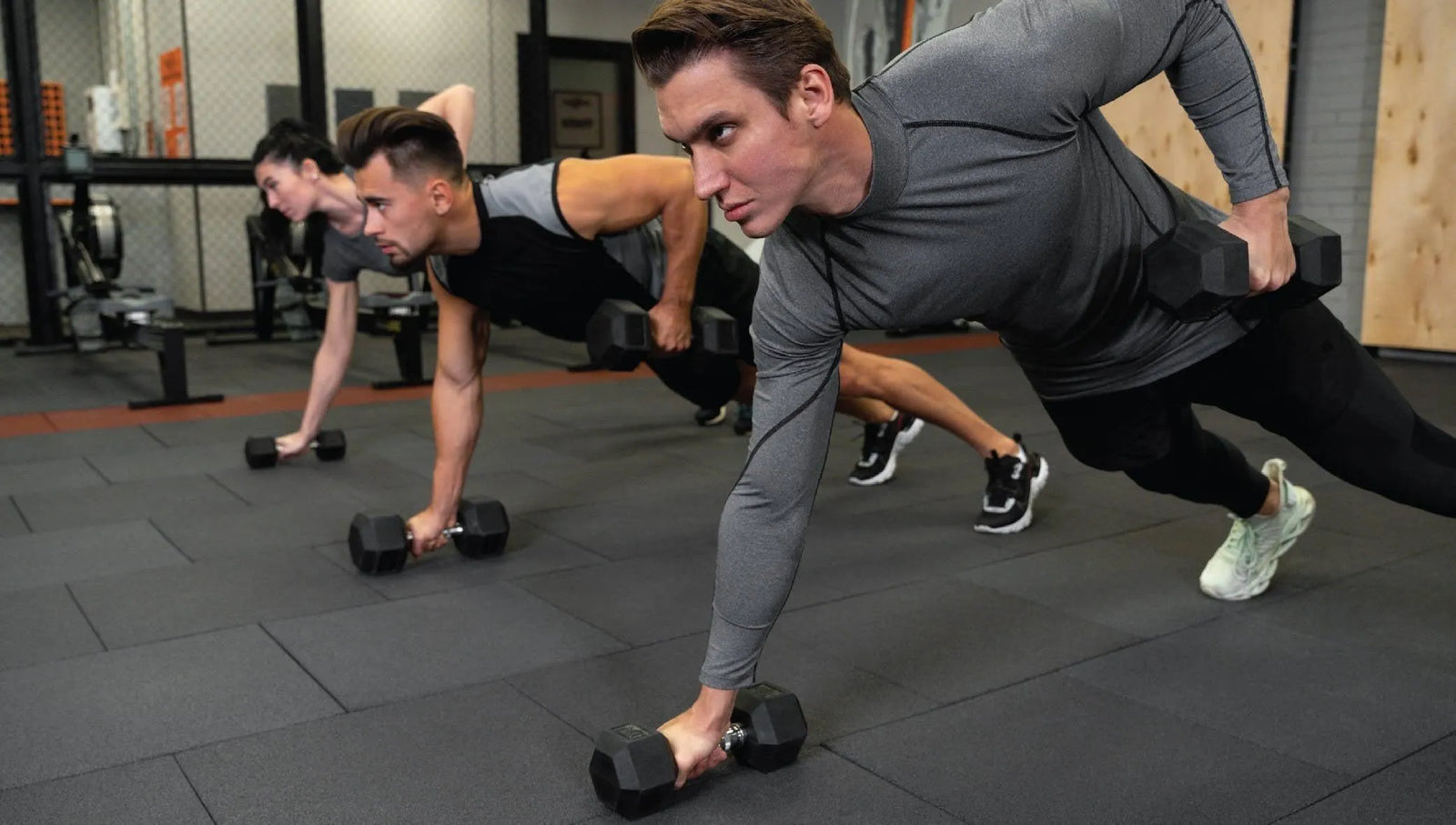Your Cart is Empty
Does time of day affect the body’s response to exercise?
April 24, 2019 2 min read

Anywhere during one’s fitness journey, this question will eventually come to mind. Whether you’re plotting your workouts within your work schedule or finding what works best for you, we’re here to find out how time affects your body’s response to exercise.
It’s quite well known that almost every aspect of our physiology and metabolism is dictated by the circadian clock,” says Gad Asher of the Department of Biomolecular Sciences at the Weizmann Institute of Science. A person’s circadian rhythm includes physical, mental, and behavioural changes that follow a 24-hour cycle in response tolight and darkness.
Senior author of another recent paper that has shown similar findings, out of the Center for Epigenetics and Metabolism at the University of California, Paolo Sassone-Corsi adds “Circadian rhythms dominate everything we do”. He goes on to say, “Previous studies from our lab have suggested that at least 50% of our metabolism is circadian, and 50% of the metabolites in our body oscillate based on the circadian cycle. It makes sense that exercise would be one of the things that’s impacted.”
Morning vs. Evening
Studies have shown that morning exercise initiates gene programs in the muscle cells, making them more effective and better capable of metabolising sugar and fat while evening exercise, on the other hand, increases whole body energy expenditure for an extended period of time.
So, there isn’t a better time to exercise as both have different effects in the body. So how might we be able to use these to our advantage?
Morning workouts
Since morning exercise increases the ability of muscle cells to metabolise sugar and fat, plotting workouts in the morning would be beneficial for people who may be severely overweight or those who are type 2 diabetes.
Evening workouts
Based on the research shown above, evening workouts were associated with increased energy expenditure, which affects how many calories we burn daily. But we may take such information lightly as it all depends on a person’s energy levels throughout the day, the amount of sleep they get, as well as food intake to fuel them for a workout.
Bottomline
There isn’t a best time for a workout. The different times of the day may have different effects to the muscles but best way to measure its effectivity is how much effort is put into a workout which means fuel and recovery will come into play.
What matters most is finding the best workout regime that fits your schedule.
What’s the best time for you?
References for “Does time of day affect the body’s response to exercise?”
- Saar Ezagouri, Ziv Zwighaft, Jonathan Sobel, Sébastien Baillieul, Stéphane Doutreleau, Benjamin Ladeuix, Marina Golik, Samuel Verges, Gad Asher. Physiological and Molecular Dissection of Daily Variance in Exercise Capacity. Cell Metabolism, 2019; DOI: 10.1016/j.cmet.2019.03.012
- Shogo Sato, Astrid Linde Basse, Milena Schönke, Siwei Chen, Muntaha Samad, Ali Altıntaş, Rhianna C. Laker, Emilie Dalbram, Romain Barrès, Pierre Baldi, Jonas T. Treebak, Juleen R. Zierath, Paolo Sassone-Corsi. Time of Exercise Specifies the Impact on Muscle Metabolic Pathways and Systemic Energy Homeostasis. Cell Metabolism, 2019; DOI: 10.1016/j.cmet.2019.03.013
Also in Training

Boosting Your Health: Understanding Aerobic and Anaerobic Metabolism
July 22, 2024 4 min read
Learn about the key differences between aerobic and anaerobic metabolism, and how to optimize your workouts for better health and fitness. Discover the benefits and performance-boosting potential of combining these two metabolic powerhouses.
Read More
Smash Through the Wall: How to Increase Your Lactate Threshold for Running Glory
July 08, 2024 4 min read
Learn science-backed strategies to boost your lactate threshold, enhance running performance, and achieve your fitness goals. Discover expert tips and techniques here.
Read More
The Ultimate Guide to Cross-Training
July 01, 2024 5 min read
Learn about cross-training, crafting a plan, tailoring for different fitness goals, and activities beyond the gym. Discover the ultimate fitness guide at VPA.
Read More Recent Articles
- Boosting Your Health: Understanding Aerobic and Anaerobic Metabolism
- Smash Through the Wall: How to Increase Your Lactate Threshold for Running Glory
- The Ultimate Guide to Cross-Training
- Embrace the Cold: How to Stay Active and Healthy Throughout Winter Down Under
- What is Hyrox?
- Mastering the Pull-Up
- Building a Champion: Why Cardio and Strength Training are Your Fitness Dream Team
- Beyond the Six-Pack: Building a Strong Core for Everyday Life
- Routine and Discipline – The Backbone of Fitness
- Calisthenics for Beginners
${{amount}}













